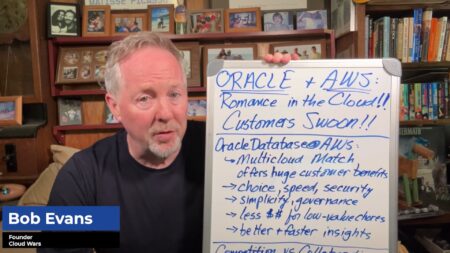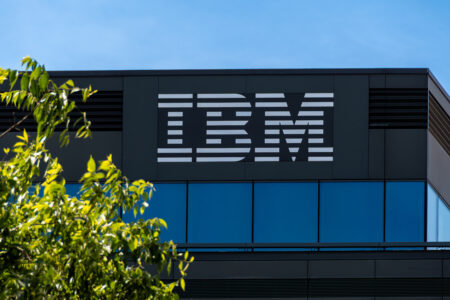The clearest and most-unequivocal proof that the enterprise-cloud business has grown up and is fully ready for industrial-strength deployments is the recent pledges from top executives at Microsoft, SAP and Oracle to make customer success —not customer satisfaction or loyalty, but customer success—their top priority in 2018.
Those tech-industry giants have joined cloud-native SaaS providers Workday, Salesforce.com and ServiceNow in committing unconditionally to this new top-priority metric in the following ways:
revamping salespeople’s compensation to be based on cloud-services consumption and business success, rather than on what Microsoft CFO Amy Hood called “the billing cycle”;
creating new roles and positions within the organization specifically designed to bring all the cloud vendor’s resources to bear on ensuring successful deployments, go-lives and ongoing operations; and
launching new programs specifically designed to enable and enhance customer-to-customer communications.
These latest public pledges from three of the world’s biggest enterprise-tech companies—Microsoft, SAP and Oracle—underscore a prediction I made late last year that customer success would become the single most-important and defining issue for the entire industry in 2018.
I laid out this new premise for cloud leadership in an article called Cloud Computing Outlook 2018: The Top 10 Predictions For Winning The Cloudand here’s a quick excerpt to offer some context on just how transformative and sweeping this new movement has become:
Yes, brilliant cloud technology will remain essential—but I would argue that in as the cloud marketplace evolves at a stunning pace, that brilliant technology and resulting cloud services are becoming table stakes in the Cloud Wars.
And as a consequence, the true measure of strategic differentiation in the cloud will be how well those cloud vendors can, as noted above, map their offerings to their customers: the business priorities of big, mid-size and small companies in every industry and across every region on the planet.
In particular, the winners in the Cloud Wars in 2018 will need to master the art—and not just the science—of helping corporate customers undertake, accelerate and complete their digital transformations; will need to radiate customer-centric messaging and behavior across their tech-centric organizations; and will need to leverage game-changing AI in everything they do.
Here’s a quick look at what Microsoft, SAP and Oracle have recently said about their individual commitments to customer success, plus some thoughts from Salesforce.com, Workday and ServiceNow on their plans:
Microsoft
When Microsoft revamped its global sales organization in July of 2017, the result was to “fundamentally change how we go to market for all customer types,” CFO Amy Hood said at an investors conference in December.
Microsoft’s goals were to ensure greater customer success by putting more technical expertise at and even within the customer’s deployment and throughout the early stages, said Hood, and here are some of her key points:
- “At the high end that’s meant adding a lot of resources that are technical. And when I say technical I mean you would probably not see the distinction between them and someone that works in Redmond writing lines of code that’s shippable.”
- “They are fully capable of implementing and doing most project startup costs—costs meaning efforts—they’re capable of getting projects off the ground, and they’re capable of demoing all deep Azure functionality. That type of person was not someone that we, frankly, had at Microsoft and used in that way.”
- “So that large investment is meant fundamentally to be about consumption and that’s how people are paid. They’re not paid on selling a contract of Azure—so not on bookings—but rather as customers are successful, meaning they get projects up and running, the meter starts spinning on Azure, and that’s when they get rewarded.”
- “The one thing I care differently about this year than I think in the past is, we’re really focused on Azure consumption as opposed to just the billing cycle, which is an important distinction. You always recognize revenue based on consumption—you don’t get to recognize revenue just for selling something.”
- “So that’s why I’m pretty wedded to the concept that this is a different way that we should be rewarding our people, because it’s more cleanly aligned structurally to customer success. And ultimately in a consumption-based business, customer success is all that matters, because it builds on itself over time.”
For more on those unprecedented changes at Microsoft to ensure greater levels of customer success, check out Microsoft Unleashes New Cloud Growth Via Go-To-Market Program Including Customers As Partners.
SAP
During SAP’s recent Q4 earnings call, here’s how CEO Bill McDermott described a similar dynamic in response to an analyst’s question about whether SAP was offering salespeople greater incentives to sell cloud versions of SAP products:
“As it relates to the cloud and how I think you could really think about the incentives to the sales force, we’ve created an environment where it really matters that those go-lives and that customer success is the most important priority and that’s also now reflected heavily in the compensation for the sales rep as well as the whole management value chain,” McDermott said.
“So for us, a ‘customer for life’ is much more a focus on the sales department side. We didn’t take anything away from them, but we made it very clear that we’re really interested in dynamite go-lives for our customers who then give raving references.”
The most-vital outcome for the salesperson, McDermott said, is to ensure that the customer gets “the product they need in the form they need it… So if the customer gets what they need at every line of business, then at every boardroom table, the CEO is going to be happy with the strategy and the management team around the CEO is going to be happy because we’re focused on the customers’ customer.”
Oracle
Shortly after Oracle’s mid-December earnings call, I wrote a piece called The Top 10 Reasons Why Oracle And Its Cloud Business Are In Great Shape that included this overview of a sweeping customer-first initiative at Oracle:
“Customer choice is becoming front and center in everything Oracle does. Two years ago, Oracle began revamping its internal business processes away from the heavy-handed approach of its on-premises days and toward those of the customer-centric philosophy of the cloud. With its unmatched set of products and services that give customers a huge range of choices to fit their unique needs and tastes, plus this new internal orientation toward customer success to ensure renewals, Oracle’s overcoming one of the major obstacles confronting it on its own journey to the cloud.”
And at a presentation during Oracle’s yearly meeting with financial analysts late in 2017, Oracle executive vice-president of applications Steve Miranda made these points about the incredible importance of ensuring customer success:
- “When we are now running our customers’ businesses as part of our cloud, that’s literally what we’re doing: we are running their business. We are much more intimate partners with our customer, and we’ve introduced brand new roles like Customer Success Managers, Implementation Success Managers, Customer Feedback Programs.”
- “Because when the customer gets the software now, really we are incented and we work with our customers to get live and get successful, and I think that’s what you’ve seen with the results going forward.”
- “There’s examples like Customer Connect which is an online forum in which we allow our customers, really as kind of a social network, to engage not only directly with our product managers but with each other. We have two events a week. These are product managers giving updates on new features and new functions, or customers presenting to us and other customers on innovative ways they’re using the applications. And we’ve grown that now to over 25,000 customer members.”
Salesforce.com
Here are a couple of key points re Salesforce’s philosophy about customer success from an article I wrote six months ago called Inside Salesforce.com’s Customer Obsession: 10 Powerful Lessons From Marc Benioff:
“Nothing is more important to Salesforce than customer success even though about half of our 27,000 employees today probably weren’t with us two years ago,” Benioff said during the call. “That’s something we really spend time with them on because when you’re in enterprise software, you have to realize that it’s hard work and not everything’s going to be perfect all the time and there are going to be problems.
“And that’s why I believe being so committed to the customer is more important than it’s ever been, and I think that’s really why you’re going to see extraordinary growth from us for years to come because it’s really this culture that’s driving us forward.”
Workday
Several months ago, in a piece called Workday’s Brilliant Gambit: Leverage Hypergrowth To Take On SAP And Oracle, I shared Bhusri’s comments to financial analysts about the extraordinary power customer success can have as a revenue-generating engine—here’s an excerpt from that piece:
“Success begets success in terms of customer deployments and having truly happy customers,” Bhusri said, “and I think we’re starting to see a ‘network effect’ of the Fortune 500 companies talking to each other and comparing notes on which solutions work, and which ones don’t.” …. And that ‘network effect’ Bhusri mentioned means that “we are getting to such big numbers [in the Fortune 500] that the customers really do talk a lot amongst themselves.”
Bhusri later offered a compelling anecdote about the CIO of a Fortune 10 company whom Bhusri had been trying—unsuccessfully—to see for 5 years.
“Finally he calls me and says, ‘Hey Aneel—I’ve had so many of your customers tell me what a great experience they’ve had with Workday, and what a good company to do business with you are, and how your products are up and running successfully—so why don’t you come and see me?’ ” (end of excerpt)
ServiceNow
Shortly after CEO John Donahoe joined the company last year, he began driving home the power of customer success and how it would have to become a bone-deep element of ServiceNow’s character if the company expected to continue to compete and grow among much-larger cloud vendors. In Inside ServiceNow’s Surge: How It’s Become The Most Innovative SaaS Vendor On The Planet, I offered these perspectives from the Donahoe:
“The area where we’re increasing our focus is in the sort of full customer lifecycle, from post-sale all the way through renewal where what I heard from customers was, ‘Help me implement and help me get maximum value out of the product, and then help me translate that into business value, that we can demonstrate,’ ” he said.
“But what we’re going to do is put a little more focus on customer success, so that we’re capturing and documenting and codifying the business value that gets created, which helps a CIO or an IT department within their organization demonstrate the value they are driving inside their company and frankly helps us on upsells, on price realization and on landing new accounts.”
*******************
RECOMMENDED READING FROM CLOUD WARS:
The World’s Top 5 Cloud-Computing Suppliers: #1 Microsoft, #2 Amazon, #3 Salesforce, #4 SAP, #5 IBM
Amazon Versus Oracle: The Battle for Cloud Database Leadership
As Amazon Battles with Retailers, Microsoft Leads Them into the Cloud
Why Microsoft Is #1 in the Cloud: 10 Key Insights
SAP’s Stunning Transformation: Qualtrics Already “Crown Jewel of Company”
Watch Out, Microsoft and Amazon: Google Cloud CEO Thomas Kurian Plans To Be #1
The Coming Hybrid Wave: Where Do Microsoft, IBM and Amazon Stand? (Part 1 of 2)
Oracle, SAP and Workday Driving Red-Hot Cloud ERP Growth Into 2019
*********************
Subscribe to the Cloud Wars Newsletter for twice-monthly in-depth analysis of the major cloud vendors from the perspective of business customers. It’s free, it’s exclusive, and it’s great!








